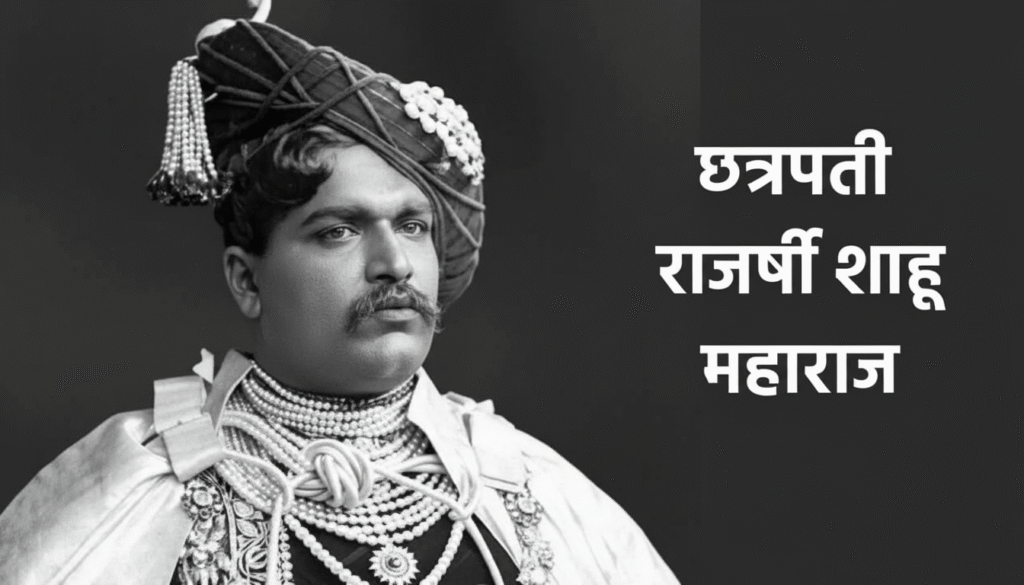Trending

India’s history is full of exceptional kings and reformers, but Chhatrapati Shahu Maharaj stands out as a pioneer in the field of social justice. A visionary king, he advocated for equality, education, and dignity for marginalised populations stuck in the caste system. His progressive actions, particularly the 1902 reservation policy, paved the way for current concepts such as affirmative action and equal opportunity.
This article will showcase Shahu Maharaj’s revolutionary work in promoting social justice, reservation, and equality, as well as investigate how his reforms continue to influence Indian constitutional ideals and legal frameworks today.
Chhatrapati Shahu Maharaj was born June 26, 1874. During his childhood, he received adequate royal instruction, but rather than simply adhering to royal customs, he decided to comprehend societal realities and confront issues at their base. After succeeding to the king in 1894, the government he established in the Kolhapur state was more than just administration; it signalled the start of a vast social change.
Chhatrapati Shahu Maharaj’s social reforms were strongly based on the notion of basic equality. In 1902, he became the first monarch in the Indian subcontinent to enact 50% job reservation for the backward classes—a historic step aimed not only at policy reform, but also at restoring the oppressed’s dignity and rights. His efforts centred on integrating marginalised people into mainstream society by ensuring equal access to education, work, and administration. Even before constitutional protections existed, Shahu Maharaj believed that social justice was a rightful entitlement that needed to be realised via intentional action rather than charity. He encouraged inter-caste marriages, opened temple doors to untouchables, and promoted progressive social organisations, making Kolhapur a model state for social equality.
His innovative policies established many of the ideals that are now written in the Indian Constitution. The 1902 reservation policy was the first concrete manifestation of what would eventually become the constitutional objective of “equality of opportunity.” At a time when India had a formal legal framework, Shahu Maharaj conducted affirmative action to combat caste-based discrimination and secure equal rights in public services and institutions. His rule reflected the ideas of justice, equality, and fraternity long before they were defined, establishing his contributions as revolutionary not only in the social arena, but also in defining India’s future legal and constitutional framework.
Chhatrapati Shahu Maharaj regarded education as the most effective tool for social reform. He believed that education was the most powerful tool for freedom from exploitation and achieving self-respect. As a result, he made primary education free and compulsory for everybody in the Kolhapur state. Special schools were established for Bahujans, Dalits, and economically disadvantaged pupils. He was the first emperor to promote girls’ education. He established independent schools, residential dormitories, and scholarship programs for women’s education.
Shahu Maharaj not only opened the doors to education, but also provided the required infrastructure for quality education. He set up libraries, reading rooms, and colleges. Shahu Maharaj’s education programs remain inspirational examples for an inclusive education system.
Chhatrapati Shahu Maharaj’s government was founded on justice, equality, and transparency. He accepted the concept that governance is more than just a source of power, but rather a service centre run for the benefit of the people. To combat the caste-based discrimination that was common in society at the time, he developed independent and impartial systems to secure justice for all members of society. His legal system made no place for discrimination based on class, caste, religion, or gender.
Shahu Maharaj established local self-governing institutions, implemented anti-corruption measures, and clearly defined administrative tasks. He held open tribunals on a regular basis to hear public grievances. For the benefit of workers, he enacted rules governing working hours, wages, and safety, which were unusual for the time.
His policies demonstrated that his administration was “for the people, run by the people, and in the people’s best interests.” The justice he provided in Kolhapur was not only legal, but also morally sound, and this became a defining aspect of his administration.
Chhatrapati Shahu Maharaj is widely regarded as India’s pioneer in the application of legal ideas relating to social justice. His 1902 reservation program for backward classes was a crucial step towards achieving the constitutional ideal of “equality of opportunity,” long before any official legal structure existed.
This insight on Shahu Maharaj’s legacy is provided by Adv. Abdul Mulla, who writes on legal and constitutional issues through his platforms www.asmlegalservices.in and www.lifeandlaw.in , helping the public comprehend law and justice in a responsible and informative manner.
Adv. Abdul Mulla (Mob. No. 937 007 2022) is a seasoned legal professional with over 18 years of experience in advocacy, specializing in diverse areas of law, including Real Estate and Property Law, Matrimonial and Divorce Matters, Litigation and Dispute Resolution, and Will and Succession Planning. read more….
Copyright BlazeThemes. 2025